Skroutz Buyers Protection
Ο κόσμος του βυζαντινού φορολογούμενου (4ος-15ος αι.)Code: 17917842
- Author: Αλέξης Γ. Κ. Σαββίδης
- Publisher: Kanaki
- Μορφή: Soft Cover
- Έτος έκδοσης: 2019
- Αριθμός σελίδων: 416
- Κωδικός ISBN-13: 9789606736278
- Διαστάσεις: 21×14
Αλέξης Γ. Κ. Σαββίδης
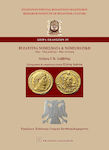
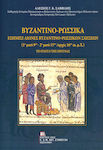

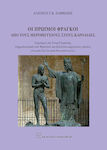


History Books
Σπουδές Μεσαιωνικής Ιστορίας στην Ελλάδα (Δυτικής Ευρώπης - Λατινοκρατίας)
from 10,37 €Added



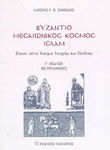
Religion & Metaphysics Books
Βυζάντιο, μεσαιωνικός κόσμος, ισλάμ, Είκοσι πέντε δοκίμια ιστορίας και παιδείας
from 14,85 €Added
History Books
Ιστορία της αυτοκρατορίας των Μεγάλων Κομνηνών της Τραπεζούντας 1204 - 1461
from 26,18 €Added
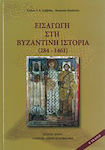
Similar products
 Top rated
Top rated Top rated
Top rated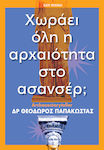
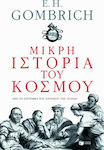

History Books
Μύθοι, Παρεξηγήσεις Και Άβολες Αλήθειες Της Ελληνικής Ιστορίας
Ad from SilverProductsAdded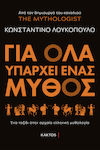 Top rated
Top rated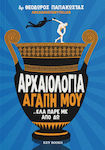

History Books
Nexus A Brief Of Information Networks From The Stone Age To Ai Yuval Noah Harari Press
Ad from GoldenbooksAdded



All shops
Prices are calculated for:Malta, Other Payment Options
- 19,88 €
- 19,88 €
- 23,85 €
- 18,55 €
Description
The main contribution of this concise monograph is related to the collection, codification, and integration of information from the basic narrative sources (historians-chroniclers) into the broader historical framework of the Byzantine Empire, focusing on the presence and actions of tax collectors in the capital, major urban centers, and provinces of the Byzantine state. The entire Byzantine period (4th-15th centuries) is examined, not just from the 7th century onwards, as often encountered in recent detailed or abbreviated surveys of Byzantine economic history. From the relevant references, as well as the unusually harsh and derogatory characterizations found in the texts of important authors (Themistius, Hesychius, Procopius, John Lydus, Kekavmenos, John Skylitzes, Michael Attaleiates, Michael Psellus, Theophylaktos of Ohrid, Eustathios of Thessaloniki, Euthymios Malakes, Michael Choniates, etc.), it becomes clear that Byzantine tax collectors were among the most hated figures in the consciousness of the Byzantine people. Additionally, fiscal measures and decisions are commented upon in various legal texts or imperial decrees regarding efforts for either tax relief or exemptions, while particular emphasis is also placed on the relevant fiscal views of the late Byzantine scholars Vissarion and Georgios Gemistos Plethon, which are discussed here. The main text is enriched by frequently inserted supplementary texts with excerpts from primary sources or opinions from significant modern scholars of economic history, administrative institutions, numismatics, etc., which contribute to a more comprehensive understanding of a frequently complex and demanding subject matter. Special effort has been made to provide as comprehensive a bibliography as possible for the work, while at the end, in the form of an appendix, an updated analytical review of the author's published Greek translation (2006) of the monumental three-volume "Economic History of Byzantium" is republished.
Specifications
- Genre
- Byzantium
- Language
- Greek
- Format
- Soft Cover
- Number of Pages
- 416
- Publication Date
- 2019
- Dimensions
- 21x14 cm
Important information
Specifications are collected from official manufacturer websites. Please verify the specifications before proceeding with your final purchase. If you notice any problem you can report it here.





















































